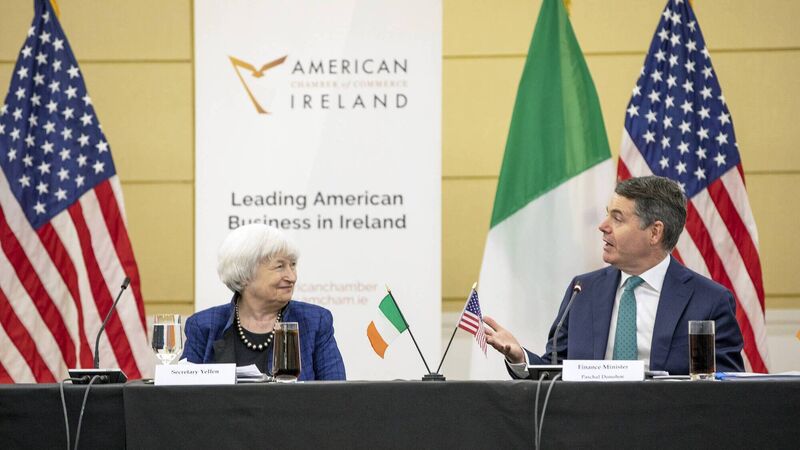Support for 15% global tax accord may become casualty of war

US Treasury Secretary Janet Yellen and Finance Minister Paschal Donohoe meeting in Dublin last November after Ireland agreed to sign up to the global corporate tax agreement.
The data collected from this month’s census is based on where people were located on census evening.
The ages-old idea of holding a census was originally not out of sociological curiosity, nor out of a desire to better target national infrastructure and services, but to see where to raise taxes.












